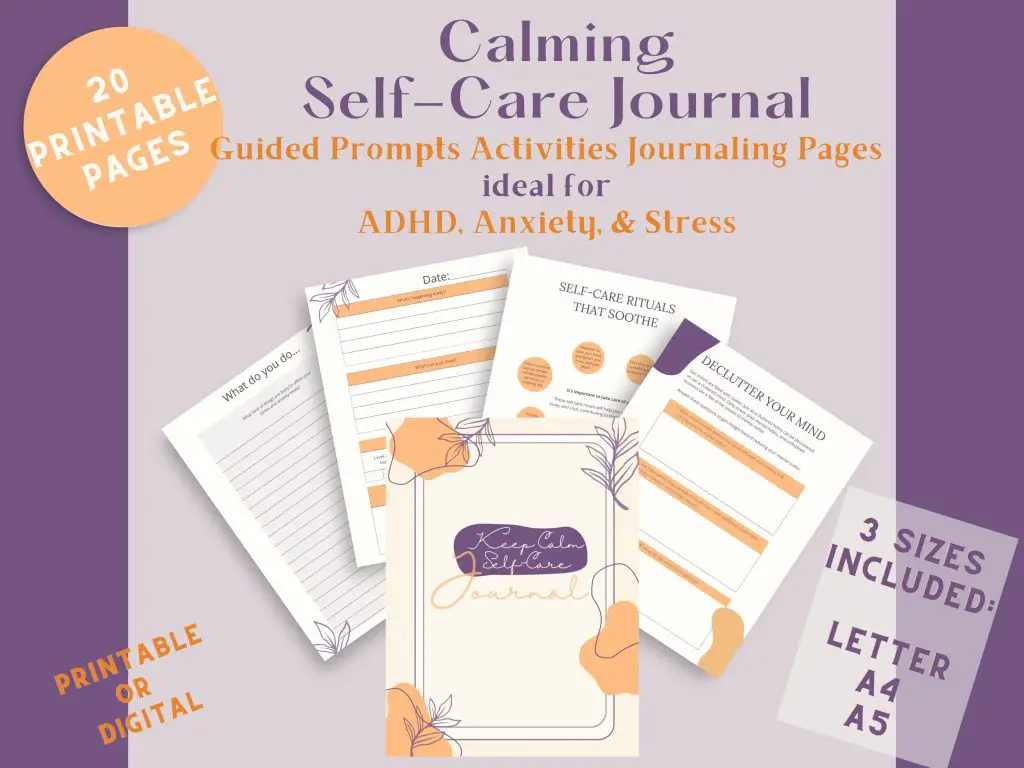In the whirlwind of parenting, amidst the chaotic schedules, endless tasks, and emotional roller coasters, finding moments of calm and clarity can feel like an elusive dream.
However, there exists a simple yet profoundly transformative tool that can offer solace, insight, and even joy amidst the chaos – journaling.
While it might seem like just another task to add to an already overflowing to-do list, creating a journaling routine can be a game-changer for parents, offering a myriad of benefits for both mind and soul.
This post may contain affiliate links, please read our disclosure policy to learn more.

Benefits Of Journaling Regularly
Emotional Release and Processing
Parenting is a journey filled with a kaleidoscope of emotions – from overwhelming love and joy to frustration, guilt, and exhaustion.
Amidst these emotions, it’s easy to feel like a pressure cooker ready to burst. Journaling provides a safe space to release pent-up feelings, fears, and frustrations.
Putting pen to paper allows parents to process their emotions, gaining clarity and perspective in the process.
Whether it’s celebrating the small victories or acknowledging the tough moments, journaling offers a therapeutic outlet for emotional expression.
Reflection and Growth
In the hustle and bustle of daily life, it’s all too easy to get caught up in the never-ending cycle of tasks and responsibilities.
However, taking time to pause, reflect, and introspect is essential for personal growth. Journaling allows parents to carve out moments of reflection amidst the chaos, fostering self-awareness and mindfulness.
By jotting down thoughts, experiences, and insights, parents can track their journey, identify patterns, and set intentions for personal and parenting growth.
Memory Preservation
The early years of parenting are filled with countless precious moments – from the first smile to the first steps and everything in between.
However, amidst the chaos of daily life, these moments can easily slip through the cracks of memory. Journaling serves as a beautiful tool for preserving these fleeting moments, capturing them in vivid detail on the pages of a journal.
Whether it’s jotting down funny anecdotes, heartfelt conversations, or milestone moments, journaling allows parents to create a treasure trove of memories to cherish for years to come.
Start your journey to self-love and mindfulness – pick up your Self Care Journal now and transform your daily routine!
Stress Reduction and Relaxation
Parenting can be undeniably stressful, with constant demands, worries, and uncertainties vying for attention. However, amidst the chaos, it’s essential to prioritize self-care and relaxation. Journaling serves as a therapeutic practice, offering a moment of calm amidst the storm.
Taking just a few minutes each day to journal can help parents unwind, relax, and de-stress, promoting emotional well-being and resilience in the face of adversity.
Connection and Communication
Parenting is a journey best shared, yet amidst the chaos of daily life, meaningful communication can sometimes take a backseat.
Journaling offers parents a unique opportunity to connect not only with themselves but also with their partners and children.
Sharing journal entries, thoughts, and reflections can foster deeper connections and open lines of communication within the family. Whether it’s exchanging gratitude journals with a partner or encouraging children to start their own journals, journaling can strengthen bonds and nurture relationships.
Bottom Line
In the midst of the beautiful chaos of parenting, creating a journaling routine can be a transformative practice, offering a myriad of benefits for both mind and soul.
From emotional release and reflection to memory preservation and stress reduction, journaling provides parents with a powerful tool for navigating the ups and downs of parenthood with grace and resilience.
So, grab a pen and a journal, and embark on this magical journey of self-discovery and growth – your future self will thank you for it.




